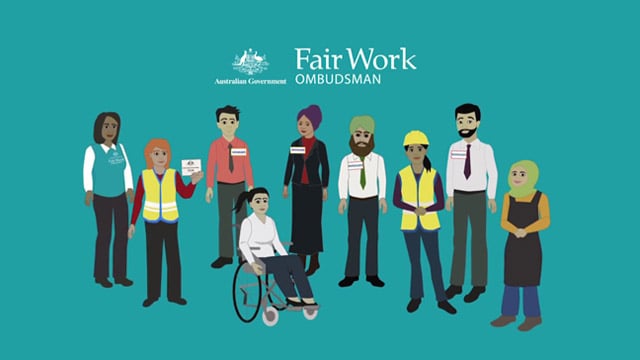Working on a Student Visa

As an international student in Adelaide, you can work up to 48 hours every fortnight during term time and unlimited hours during all semester breaks and holidays3. This flexible arrangement helps you earn while you learn.
Keep in mind:
You cannot work until you have started your course in Australia.
You can work unlimited hours during semester break and holidays, including your mid-semester break.
If your course includes work as part of its curriculum (e.g. student placements that contribute to course credit), these hours don't count toward the 48-hour cap.
For those studying a master's by research or a PhD, there are no limits on work hours.

International students have the same working rights and protections as anyone else working in Australia4. Casual and part-time employment is an excellent way for international students to balance work with their studies.
There are hundreds of part-time and casual jobs available for international students in Adelaide and we’re here to help you. Start your job search with the StudyAdelaide Job Shop, where local businesses regularly post part-time, casual positions and volunteering positions for international students. Apply for jobs today - even before you arrive in Adelaide.

Under student visa working hours regulations, international students in Australia are restricted to casual or part-time employment while studying, as full-time employment, which requires 38 hours per week, exceeds the allowable work hours for visa holders.
As a part-time employee, you'll work consistent, set hours each week, and enjoy benefits, such as paid annual and sick leave, similar to full-time employees, but on a pro-rata basis5
This type of employment is popular in industries such as retail, hospitality, and office administration, where predictable hours can align well with study schedules.
As a casual employee, you'll receive a higher hourly pay rate, but you won't be entitled to paid sick leave or annual leave6
This type of employment offers flexibility, allowing students to adjust their work hours around academic commitments. Be sure to track your student visa working hours in Australia to stay within the allowed limits.
Every worker in Australia, including international students, needs to complete these basic steps before starting their first job.
To receive payments for your work, you'll need an Australian bank account. Opening a bank account in Australia is generally free and easy.
You can open an account online in some cases. Alternatively, you can visit a bank branch in Adelaide with your passport, a copy of your visa or student ID, an address in Australia, and your Australian mobile phone number. Learn more about student-friendly bank accounts.
A Tax File Number (TFN) is essential for employment in Australia, as it ensures you’re taxed at the correct rate. Applying for a TFN is straightforward and can be done online through the Australian Taxation Office (ATO) website.
It’s recommended to apply as soon as you start your job search as it may take up to 28 days to arrive.
Make sure you have copies of essential documents like your passport, visa details, student ID, and bank account.
These will often be requested by employers to verify your Australian student visa status.
Certain job roles require specific certificates or training. Here's an overview of common checks and certifications you may need before starting work.
In Australia, a National Police/Crime Check is commonly required for roles where there is a need to ensure the safety and integrity of the workplace or the public. This is particularly necessary in sectors where employees work with vulnerable people, handle sensitive information, or are in positions of trust like healthcare, hospitality, government, and security, among other roles.
Apply for a National Police/Crime Check here.
In Australia, a Working with Children Check (WWCC) is mandatory for roles that involve direct or indirect contact with children, aimed at safeguarding children by screening individuals for any history that may pose a risk. It’s generally required for hospitality, sports, community, entertainment, and similar.
Apply for a Working With Children Check here.
The kind of certification required depends on the type of work you are applying for but some essential certifications you might need can be Responsible service of Alcohol (RSA), Food Handling for restaurant work, White Card for Construction, and many more.
*NOTE: The kind of certification required depends on the type of work you are applying for.

As an international student, it's important to be aware of your student visa work rights to ensure you are treated fairly and protected in the workplace. These are the essentials you need to know to navigate your employment journey with confidence.
Your employer must ensure you receive at least the minimum wage and provide regular pay slips. Your working hours must align with the conditions of your student visa working hours which are designed to balance study, work, and life. Find out more at the Equal Opportunity Commission.
Your employer is responsible for maintaining a safe working environment. This includes managing workplace risks and hazards to ensure your health and well-being. It's your right to work in an environment free from harm and discrimination. For more information on workplace safety, refer to SafeWork Australia.
It is illegal for your employer to discriminate against you based on race, gender, age, religion, disability or other personal characteristics.
Discrimination protection ensures that all workers, including international students, are treated equally and fairly. If you encounter unfair treatment, have concerns about your rights at work, or experience discrimination, contact support services like the Fair Work Ombudsman, which provides advice in multiple languages and can help resolve workplace issues.
Before you start working in Australia, understand how much you should be paid and how the tax system works to protect your earnings as an international student.
Your employer is required to outline your pay in your employment contract, Enterprise Bargaining Agreement or industry award. It’s important to keep the following things in mind:
Your employer can’t ask you to work on a ‘trial basis’ for no pay; this is illegal.
You must only work up to the limits set by your student visa work rights.
You will need an Australian bank account, so your employer can pay you.
Casual pay should be calculated based on an hourly rate, not a ‘session’ or ‘shift’ rate (this could be illegal).
Need Help? If you're worried about your pay, ask to see your contract or award. For support, contact the Fair Work Ombudsman.
When working in Australia, you must pay tax on your earnings. To ensure the correct amount of tax is withheld from your pay, you must obtain a Tax File Number (TFN) from the Australian Taxation Office (ATO).
Here are some things you need to keep in mind:
You can easily apply for a TFN online through the Australian Taxation Office.
If you don’t have a TFN, your employer will withhold more tax from your wages.
You will need to fill out a Tax File Number Declaration to give your TFN to your employer.
Your employer will withhold tax on your behalf.
Your employer must give you a pay slip outlining your salary and the tax withheld (if they don’t, you should ask for it).
You have to lodge a tax return with the Australia Taxation Office each financial year.
Your employer must pay superannuation (or ‘super’) into your nominated fund. This money grows over your lifetime and provides for your retirement.
This money will stay in your super fund unless you decide to claim it back when you leave Australia.
You should never agree to let an employer pay you in cash (without a pay slip) or allow you to work more hours than your visa allows.
If you do, you might:
Be being exploited by your employer
Get paid less than you should
Be breaking the law and could be forced to leave Australia.
Not be protected if you get injured at work
Get into serious trouble for not paying tax
You can contact the Fairwork Ombudsman, which has information available in 30 different languages, for advice and assistance.

Adelaide's educational institutions are future-focused, meaning you’ll be prepared for whatever comes next in your field of study. You'll have opportunities to forge industry connections with employers while developing practical, real-world skills that help you succeed in your dream job.
When you study in Adelaide, you may be able to access more favourable rights to study, work, and live here after graduation.
Discover all the ways to find work in Adelaide through our complete job guide. Learn how to use Job Shop to meet employers, access university career services, and build your professional network. Plus, get expert tips on job applications and explore student-friendly work opportunities.
As an international student in Australia, you can begin working only after your course has officially started.
As an international student in Australia, once your course begins, you can work up to 48 hours per fortnight during term time and unlimited hours during semester breaks and holidays. This flexible arrangement allows you to earn while you learn.
Yes, during recognised periods of vacation provided by your education provider, you are allowed to work unlimited hours. This also includes your mid-semester breaks.
The cap applies to all international students, regardless of when they started their studies.
No, the 48 hours cap is the total number of hours you can work per fortnight across all your paid employment.
The 48 hours a fortnight work limit does not apply if you engage in work that is specified as a requirement of your course of study or training.
For all other types of work, you will need to count these hours towards the 48-hour fortnightly limit.
No, an employer cannot cancel your student visa.
It depends on your level of study. Partners or spouses of student visa holders who have started studying a master's or doctorate degree can work unrestricted hours.
Partners or spouses of all other student visa holders can work no more than 48 hours a fortnight. It’s important to remember partners or spouses of student visa holders cannot work before the student’s course starts.
You can learn more about visa conditions at the Department of Home Affairs.
If you are working under an ABN you will still need to abide by the working hours cap of 48 hours per fortnight.
Keep in mind that if you work under both your TFN and ABN, your combined hours must not exceed 48 hours per fortnight.